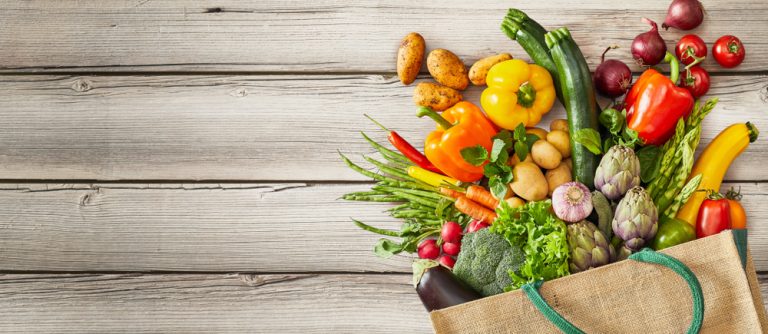Vegetarianism is not only a diet that eliminates meat, but it is also a healthy lifestyle, which is based on a specific philosophy, morality and views on nutrition. A vegetarian diet is healthy as long as you know how to compose your menu correctly. Here are 12 tips for those who don’t want to eat meat.
To become a true vegetarian, it is not enough to eliminate meat from your diet. You also have to learn a new lifestyle. The following rules will help you with that!
Remember to vary your meals
In addition to fruits and vegetables, eat grains, dairy, and high-protein foods. Each one provides different nutrients. By diversifying your diet, you will reduce the risk that by eliminating meat from your diet, you will miss something. The monthly menu of a healthy person should contain about 60 different dishes.
Choose coarse grain products
Eat wholemeal bread with soybeans, nuts or sunflower seeds, dark rice, millet and buckwheat, replace white flour with coarse flour. Add sprouts, germs and wheat bran to your meals. You can also eat them alone.
Eat around 80 grams of vegetables and fruit every day
Preferably raw. Prepare salads just before consumption. Remember that heat treatment destroys vitamins. So cook vegetables and fruits, preferably in the skin on, by steaming or in a small amount of water and as little as possible. Do not peel the vegetables, just scrape them off the dirt.
Eat the seeds of legumes
Broad beans, peas, chickpeas, soybeans, lentils and all varieties of beans contain a lot of protein and essential minerals, B vitamins and valuable fibre.
Don’t overdo eating soy
Use it alongside eggs and other legumes. Eat plenty of salads, vegetables, and fruits to keep your body in the right balance of protein and carbohydrate. Don’t skip fermented food because it's better digested.
Chew on nuts throughout the day
The seeds of sunflower, pumpkin, sesame, nuts and almonds are a source of vitamins, including those from group B, and other micronutrients like zinc, calcium, iron. Walnuts also provide a lot of unsaturated fatty acids.
Use vegetable fats
They contain unsaturated fatty acids, vitamin E and provitamin A. Buy cold-pressed oils. Corn, sunflower and soybean are easily oxidized during frying and lose their healthy properties. Fry using rapeseed oil and olive oil.
Eat dairy
Milk is an excellent source of calcium, and its fermented products also contain digestive friendly lactobacilli. Eat at least 4 eggs a week, as long as your blood cholesterol is not high.
Make homemade herbal teas
Prepare them from raspberry leaves, wild strawberries, blackberries, black currants, elderberry flowers, acacia, rosehips, blueberries and rowan, properly dried and combined into your favourite compositions. Choose green and white teas from black teas - they are less processed.
Drink at least 2-3 litres of water a day
It is needed for all metabolic processes inside our body, dissolves mineral salts and vitamins, cleanses the body of toxins, regulates temperature. Also, it moisturizes the skin, preventing it from ageing.
No salt or sugar
Salt is found in most products. Therefore, there is no need to add extra salt. Use herbs, spices vegetables, seaweed. And if you can’t do without a salty taste, choose herbal or sea salt. Instead of sugar, use honey, maple syrup, and molasses.
Buy organic products
Try to buy food from biodynamic crops and untreated fruits and vegetables. Stock up at health food stores directly from farmers. Choose foods without improvers or preservatives.






